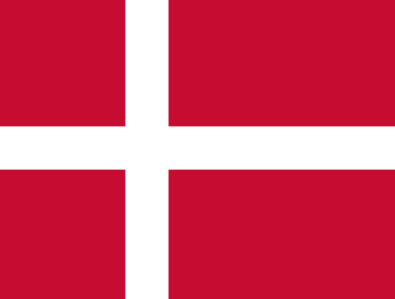Denmark
Denmark


Denmark is a country in Northern Europe with a long and fascinating history that can be traced back to the Vikings. Since prehistoric times, people have lived in what is now Denmark, and the country has been ruled by several different groups, including the Vikings, the Holy Roman Empire, and the Danish Kingdom. From its earliest beginnings to the present day, the story of Denmark will be told here.
Denmark in the Stone Age
There is evidence of human habitation in Denmark as early as the Stone Age, some time before the year 10,000 B.C.E. The earliest Danes were nomadic hunter-gatherers. They lived in small bands and traveled widely in search of food. Stone tools and cave paintings attest to their presence in the area.
Denmark’s early settlers established permanent communities and established sophisticated agricultural systems sometime around 1800 BCE, during the Bronze Age. They also started trading with other cultures, such as those in southern Europe. Denmark is home to some of the world’s best preserved Bronze Age burial mounds.
Viking Era
Around 800 C.E., the start of what is known as the Viking Age in Denmark began. The Vikings gained notoriety during this time for their infamous raids on foreign lands, but they were also accomplished merchants and explorers. They settled in many parts of Europe and even reached as far as North America, Russia, and the Middle East.
Vikings left an indelible mark on Danish culture as well. They introduced cutting-edge innovations to the area, such as the highly effective longship, which could be used for both raiding and trading. Along with new cultural practices came the worship of Norse deities like Odin, Thor, and the rest of the pantheon.
In the Danish realm
The first Danish kingdom was founded in the 10th century under Harald Bluetooth. The Jelling Stones, which he constructed, are among the most significant historical artifacts in Denmark, and he is widely known for his conversion to Christianity as well. The stones commemorate the coming together of Denmark under Harald Bluetooth’s rule and are inscribed in both Danish and runic scripts.
Denmark rose to prominence in Northern Europe under the rule of several dynasties of kings during the Middle Ages. Christian IV, who reigned from 1588 to 1648, is widely regarded as the most significant of these monarchs. He oversaw the construction of many notable structures, such as Rosenborg Castle and the Round Tower, and was a patron of the arts and sciences.
This was the Enlightenment Era.
A lot of important shifts happened in Denmark in the 18th century. An upswing in the economy coincided with a flourishing of the creative and scientific sectors. Many influential thinkers emerged during this time, known as the Age of Enlightenment, including the philosopher and theologian Sren Kierkegaard.
During this time, Denmark also participated in the transatlantic slave trade, a topic of much debate and controversy in modern times.
Danish Society Today
The adoption of a new constitution in 1849 marked the conclusion of a period of political upheaval in Denmark that began in the nineteenth century. Freedom of the press and the right to vote were just two of the many democratic reforms enshrined in this constitution, which also established Denmark as a constitutional monarchy.
From 1940 to 1945, Nazi Germany occupied Denmark because of its pivotal role in the war. Denmark eventually joined NATO and the European Union after the war.
Now more than ever, Danes enjoy a global reputation for their high quality of life, robust welfare system, and dedication to renewable energy. The country is also home to numerous prestigious cultural institutions such as the Royal Danish Ballet and the Louisiana Museum of Modern Art.
Denmark’s involvement in the transatlantic slave trade in the 17th century is just the beginning of the country’s long history of racism. Slaves were imported to the Danish West Indies (which included the modern-day US Virgin Islands) by Danish traders from Africa between 1672 and 1848, when slavery was finally abolished. Racism is still an issue in modern-day Denmark because of the country’s troubled past.
Denmark was an influential colonial power in the 19th and early 20th centuries, with colonies across Africa, Asia, and the Caribbean. Danish colonialism, especially in Africa, was defined by its exploitation of natural resources and of local populations. The country’s racist views and practices, especially toward people of color, can be traced back to its colonial and imperial past.
Danish territory was occupied by Nazi Germany during WWII. By working with the occupiers, the Danish government contributed to the deportation of Danish Jews to concentration camps. After receiving widespread criticism for its complicity, Denmark issued an apology for its part in the deportation of Jews during World War II.
When refugees and displaced people from all over the world found refuge in Denmark after World War II, the country quickly transformed into a truly multiethnic society. But it also contributed to rising racial tensions, especially against North African and Middle Eastern Muslims who had recently immigrated to the United States. A number of high-profile incidents of racist violence and discrimination in the 1980s and 1990s brought attention to the issue of racism in Denmark.
Issues of immigration and integration have received more attention in Denmark in recent years, with some politicians calling for more restrictive immigration policies and fewer protections for refugees and asylum seekers. Human rights groups and immigrant rights organizations have been particularly vocal in their accusations of racism and xenophobia as a result.
Denmark has a long and complicated history of racism and discrimination. While the country has made strides in this regard in recent years, much more must be done to eradicate racism and build a society where everyone can thrive on an even playing field. To accomplish this, people at every echelon of society (from politicians and policymakers to individuals and communities) must dedicate themselves to the cause of eliminating racism in all its manifestations.













You must be logged in to post a comment Login